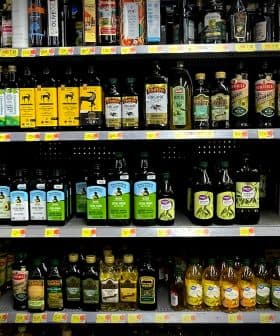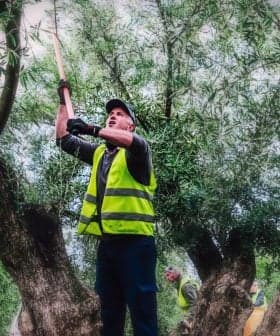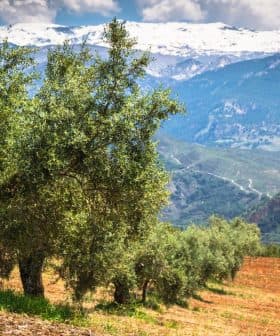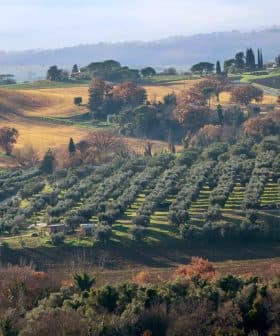AI Tools May Not Transform Agriculture, but Will Help Farmers, Experts Predict

OpenAI’s chatbot, ChatGPT, has gained popularity with 1 million users signing up in the first five days, and while it can provide answers and mimic writing styles, it lacks deep reasoning abilities and cannot predict the future accurately. Experts caution that despite its potential benefits, ChatGPT and similar AI chatbots may introduce biases into sectors like agriculture, highlighting the need for growers to adapt quickly and build digital literacy to embrace the advancing technology.
In the three months since it was first unveiled, OpenAI’s artificial intelligence-powered chatbot has captured the general public’s imagination.
OpenAI no longer publishes official use figures but said 1 million users signed up for the free service in the first five days.
We should not really think of this as a magical tool that can solve all the problems
The large language model-based generator – fed on billions of data points, including books, news articles and other web content – can instantly answer questions, though not always accurately, and mimic creative writing styles.
Since its inauguration, people from a wide range of sectors have been trying to figure out how best to harness the unprecedented power of this artificial intelligence to make their businesses more efficient.
See Also:Researchers Use AI to Identify extra virgin olive oil ProvenanceChatGPT is unlikely to revolutionize agriculture, but experts suggest that it could help farmers with research and tasks, such as writing website content and marketing material.
Heng Ji, a professor of computer science at the University of Illinois – Urbana-Champaign, told Olive Oil Times that large language model-based generators could help farmers perform tasks where human judgment can be used to assess the accuracy of the information.
Large language model-based generator
A large language model-based generator is an AI tool that uses machine learning to generate text or other types of content based on input prompts. It is trained on vast amounts of text data and uses this knowledge to create new content that resembles the input it was given.
“But we should not really think of this as a magical tool that can solve all the problems,” she said.
For example, Ji said farmers could ask ChatGPT how to plant specific crops in certain regions or climatic conditions and expect to receive accurate advice.
ChatGPT could also summarize the findings of scientific studies or provide practical information, such as how to repair a piece of equipment.
“A large language model is just memorizing a sequence of tokens,” she said. “It is about the aggregation of human experiences from the past. It’s basically gathered all the data from the whole web before 2021 and memorized it.”
Sequence of tokens
A “sequence of tokens” means a sequence of smaller units of meaning, called “tokens,” that make up a larger piece of text or code. Tokens are usually words or punctuation marks. Breaking down text or code into sequences of tokens makes it easier to analyze and process, and is used as inputs for machine learning models to generate new text or classify it into different categories.
Ji warned that large language model-based generators – despite what they claim when asked – cannot engage in the process known as scientific discovery.
For example, ChatGPT says it can help farmers by predicting future climatic conditions and market prices. However, Ji explained why this is not possible.
“It does not have deep reasoning abilities,” she said. “It cannot predict the future. If you are asking the model to discover something about a new condition or some tasks that it’s never observed before, it’s not going to do that [accurately].”
“It will generate an answer in fluent English, but there’s no knowledge grounding capability, and there’s no guarantee about the truthfulness of the answer,” Ji added. “The system was not designed for reasoning or discoveries.”
Todd Janzen, an attorney specializing in agricultural law, agrees. He asked ChatGPT: “What are the top five ways that ChatGTP will revolutionize agriculture in the United States?” Among the responses, ChatGPT said it could use its abilities for data analysis and predictions.
“If you knew nothing about agriculture, you would think ChatGPT’s predictions were pretty amazing,” Janzen wrote in Successful Farming magazine. “These predictions come across as very authoritative and knowledgable.”
“But peel back the veneer, and you find a kind of word salad that sounds impressive but lacks much depth or meaning,” he added. “Most of these five points are just regurgitating the same concepts: data analysis and prediction.”
Before ChatGPT can become a revolutionary tool for farmers, Ji believes that the problem around the accuracy of its answers must first be fixed.
She added that researchers are already working on their own large language model-based generators. One specifically geared toward agriculture could be created, where all the responses would be based on confirmed knowledge. However, even this would still be unable to predict the future.
While ChatGPT and other similar AI chatbots are unlikely to change how farmers do their jobs, the rapid advance of the technology may still have some profound consequences for the sector.
“My experience is that the agrifood sector is way more fragile than others in terms of potential biases introduced by the AI tools such as ChatGPT,” Yu Jiang, an agritech researcher at Cornell University, told Olive Oil Times.
“It’s important not only to consider how to let growers use ChatGPT but also how to develop digital content strategically (in collaboration with ChatGPT) to influence the models,” he added.
For example, Jiang’s research with the AI chatbot has demonstrated that its answers to questions about wine recommendations are biased toward companies with extensive digital footprints.
“If someone uses ChatGPT APIs [a tool that allows different software or applications to communicate] to create a recommendation app, especially for new customers, these small wineries would lose their market share very fast, resulting in further consolidation of the agrifood community,” he said.
With the integration of ChatGPT into Bing, a search engine, the shift to AI-based search looks increasingly inevitable. Jiang warned that small farmers must adapt quickly or risk being left behind.
“If diversity is a part of resilience, we should encourage the growers to start to think actively with these new AI tools that are not designed for agriculture and food applications and build digital literacy and training materials for growers to embrace the change,” he concluded.










